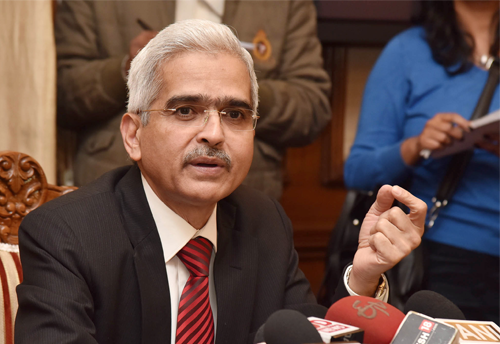RBI Governor cautioned against cherry-picking of data
Updated: Jun 29, 2019 11:45:52am

RBI Governor cautioned against cherry-picking of data
New Delhi, 29 June (KNN) The Reserve Bank of India (RBI) Governor Shaktikanta Das cautioned against cherry-picking of data by experts saying correlations can conveniently be used to establish spurious causality to achieve desired results.
He was speaking at the RBI's 13th Annual Conference on 'Statistics for the Future - Select Issues, on the eve of ‘Statistics Day’ -- designated by the Government of India on June 29 to commemorate the birth anniversary of renowned statistician Prasanta Chandra Mahalanobis.
In his inaugural address, Das said that in an era of the internet and social media, there is no substitute for rigorous statistical testing for establishing empirical regularities.
His remarks come in the backdrop of recent controversies over Gross Domestic Product (GDP) data after former Chief Economic Adviser Arvind Subramanian in a research paper claimed that India has over-estimated its economic growth.
Das said in his keynote address that in the Reserve Bank too, we propose to leverage our new-age data warehouse to support a granular data access lab to facilitate research, and a sandbox environment for evaluating regulatory tools.
Das also said critics allege that these tests are susceptible to manipulation in order to make desired results significant and undesired results non-significant.
Further, some important results may be discarded at the conception level itself just because they are highly unlikely, he said.
"Similarly, an opportunity to cherry-pick variables is available. In other words, correlations can conveniently be extended to establish spurious causality," the Governor said.
The central bank will continue to refine methodologies and use cutting edge techniques for forecasting of macroeconomic developments on an ongoing basis. In the Reserve Bank, we will continue to refine the methodologies used for forecasting and assessment of macroeconomic developments on an ongoing basis, he added.
He further asserted that big data is the new buzzword in the world of statistics, and it has already started changing the way the world views itself.
Corporations, he said, are making large investments to predict the behaviour of consumers by exploiting the advances made in the field of data analytics.
This information technology revolution has also created problems of plenty, underscoring the need for rigorous processes of classification, aggregation and analysis.
He said, "Big data analytics are being increasingly employed to assess food inflation, to develop risk profiles and stress scenarios for the corporate sector and to conduct sentiment analysis with artificial intelligence and machine learning techniques.”












